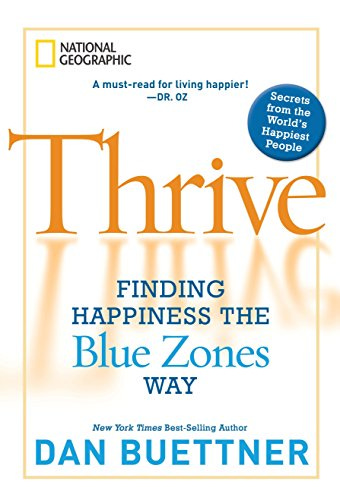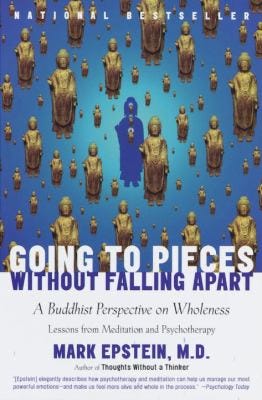Unsplash Photo Credit: Dmitry Schemelev
Having turned 60 in recent months, I can’t ever recall a time when I’ve witnessed so many folks in such great despair. I’m talking……..
……. Mentally. Spiritually. Emotionally. Physically. And yes, Financially
Struck by the enormity of what I was witnessing, I inquired on Substack Notes as to whether this was a common sentiment among others. Little did I know that I was going to get a flood of responses. Here is just a brief sampling of what I heard:
writes:in citing hypercapitalism adds:“It's the fragmentation and atomization of society. Just like the human body, just like the natural environment, we are meant to be an integral part of an ecosystem, be that ecosystem psychological, economic, social, educational, etc. When you start pulling individual elements (people) apart, the system begins to fail. Many of us are seeing this and yes it's stunning to see, and experience directly, first hand.”
“I think people in power aren't even pretending to care about real problems anymore and [our sense] of community [has] eroded significantly from what it was when I was younger.”
Then there was
who shared the following:“I think it's all related to values and behaviors of the way people live in the USA and other first world countries. I live in Ghana, Africa and there's little of that unhealthy way of living here. Walking, community, organic food, less consumerism(fewer malls and fast food joints), all contribute to a better life, not how much you can spend, and in search of the American dream!”
Like many, I find life to be an ongoing existential struggle, one where are often in survival mode for brief or long stretches barely holding things together.
Embracing the power of books and reading can be a valuable tool in navigating today's rapidly changing world and helping us through our struggles. During tough times, I find that reading can deliver a wealth of knowledge and diverse perspectives which can help me better understand complex issues, make informed decisions, and adapt to changing circumstances.
I have found that reading fiction and nonfiction alike can foster compassion for self and others when we explore various character experiences and worldviews. Raking in stories of individuals overcoming adversity can inspire resilience and determination in your own life, showing us that even the most difficult of challenges can be surmounted.
Moreover, in a world where skills and information are constantly evolving, reading allows for continuous learning. For me, staying abreast of industry trends and futuristic developments is critical for adapting to the world’s forever changing landscape.
As a stress reduction practice, reading can also serve as a form of escapism, providing one a break from the stressors of daily life. For me, nothing is more useful than the opportunity to take a break from my writing to relax my mind and reduce my stress levels.
Then there are those books in the self-help and non-fiction genres that provide practical advice and solutions to common life challenges. This knowledge can then be skillfully applied to problems that you may be seeking to solve.
Finally, books serve as a connection point for us to like-minded individuals through book clubs, online forums, or social media groups. Sharing ideas and discussing books can provide a sense of much needed community and belonging amid the struggles we may be facing.
Now let’s turn to three books that I have personally found invaluable in terms of redirecting my mindset and perspectives when I’ve faced hardship and difficult times. My aim here is to simply offer you some examples from own life as a means of encouraging you to search out books that speak to your particular predicament.
"Thrive: Finding Happiness in the Blue Zone" by Dan Buettner explores the concept of the "Blue Zones," regions in the world known for having the highest rates of happiness and longevity. Buettner identifies common factors contributing to well-being in these areas and suggests how these insights can offer perspectives amid life struggles.
The book delves into the lifestyles, diets, and social structures of Blue Zone inhabitants, highlighting principles such as strong social connections, a sense of purpose, regular physical activity, and plant-based diets. These factors contribute to both physical health and emotional well-being.
In the context of life struggles, "Thrive" encourages readers to consider the following perspectives:
Community and Social Bonds: Blue Zone residents prioritize social connections and communal support over all else. Amid life's challenges, fostering strong relationships can provide emotional support and resilience.
Purpose and Meaning: Having a sense of purpose and passion in life is a common theme in Blue Zones. Hearing the book’s stories have helped me in the past navigate difficulties by offering reasons to persevere and find joy.
Healthy Lifestyle Choices: The book emphasizes the significance of healthy eating and regular physical activity. These habits can boost physical and mental well-being, aiding in coping with stress and adversity.
Simplicity and Stress Reduction: Simplicity and reduced stress are key elements of Blue Zone living. Simplifying your life and finding ways to manage stress can be transformative during challenging times.
In summary, "Thrive" by Dan Buettner unlocks the secrets to happiness and longevity in the Blue Zones, offering valuable insights into how these principles can help individuals find perspective and well-being amid life struggles. By focusing on community, purpose, health, and simplicity, readers can apply these lessons to enhance their own lives and better navigate the challenges they face.
"Going to Pieces Without Falling Apart: A Buddhist Perspective on Wholeness" by Mark Epstein explores the integration of Western psychotherapy and Buddhist mindfulness practices to help individuals find inner peace and wholeness. It offers valuable insights for those experiencing life struggles in the following ways:
Mindfulness and Self-Acceptance: The book introduces mindfulness as a way to navigate life's challenges. It encourages readers to be present in their experiences, fostering self-awareness and self-acceptance.
Embracing Impermanence: Drawing from Buddhist philosophy, Epstein explores the concept of impermanence, teaching readers how to accept change as a natural part of life and adapt to it more gracefully.
Integration of Eastern and Western Approaches: By blending principles of Buddhism with Western psychotherapy, the book provides a holistic perspective on mental health. It encourages readers to explore their emotional well-being from multiple angles.
Dealing with Suffering: Epstein discusses the nature of suffering and how individuals can develop a healthier relationship with their pain, transforming it into a source of growth and wisdom.
Spirituality and Psychology: The book bridges the gap between spirituality and psychology, offering practical techniques for self-discovery and healing that can be especially valuable during life's difficult moments.
Self-Compassion: Epstein emphasizes the importance of self-compassion, teaching readers how to treat themselves with kindness and understanding, even in the face of adversity.
In summary, "Going to Pieces Without Falling Apart" provides a valuable perspective for those experiencing life struggles by blending Buddhist wisdom and Western psychology. I have found it to be a great guide toward self-awareness, acceptance, and resilience, which has helped me navigate challenges with a greater sense of inner wholeness and peace.
"The 50th Law" by 50 Cent and Robert Greene is a unique and insightful book that blends autobiographical elements from 50 Cent's life with Robert Greene's expertise in strategy and human behavior. It offers perspectives that can be particularly valuable to individuals experiencing life struggles:
Fearlessness: The book emphasizes the importance of conquering fear. 50 Cent's life story, which includes overcoming significant obstacles, serves as a powerful example of fearlessness in the face of adversity. This can inspire readers to confront their own fears and challenges with greater courage.
Adaptability: Greene and 50 Cent discuss the ability to adapt to changing circumstances as a key to success. In a rapidly evolving world, the book encourages readers to embrace change, learn from setbacks, and pivot when necessary.
Self-Reliance: Drawing from both 50 Cent's experiences and historical examples, the book promotes self-reliance and self-determination. It encourages individuals to take control of their lives, make their own decisions, and not be overly dependent on external factors.
Mastery: “The 50th Law" emphasizes the importance of continuous self-improvement and mastery. Greene's insights into the path to expertise and 50 Cent's dedication to his craft show how perseverance and dedication can lead to success, even in the face of adversity.
Resilience: Both authors highlight resilience as a crucial quality. 50 Cent's ability to bounce back from difficult situations and Greene's discussions on setbacks and comebacks provide valuable lessons for readers facing their own challenges.
Street Smarts and Strategy: The book combines street smarts with strategic thinking, offering practical advice on navigating the complexities of life. It provides insights on reading people, making calculated decisions, and seizing opportunities.
In summary, "The 50th Law" offers a compelling blend of personal narrative and strategic wisdom, making it a valuable resource for those experiencing life struggles. It encourages readers to confront their fears, adapt to changing circumstances, and take control of their destinies. By learning from the life lessons shared in the book, I found practical strategies for overcoming my own challenges along with inspiration for pursuing my aims with greater confidence.
My greatest wish is that you will personally begin to seek out books that speak to your particular challenges and needs. Incorporating reading as a way of examining the challenges in your life can be a powerful way to gain knowledge, build emotional intelligence, and adapt to the ever-changing world around us. Whether we’re talking about personal or professional challenges, books can offer an invaluable resource for growth and resilience.









This is a wonderful post (I just spent the last few days literally talking about all of this with a friend who was in town). Dan Buettner's work is fabulous -- I need to check out the others here. Thank you for sharing!
Great post! And Thrive is great book too.